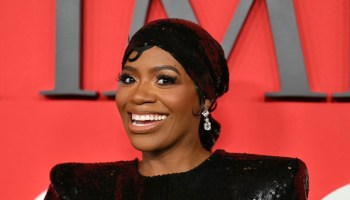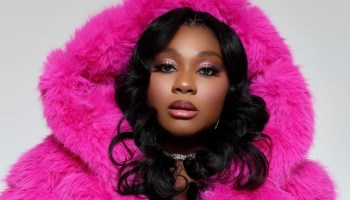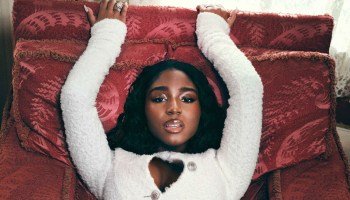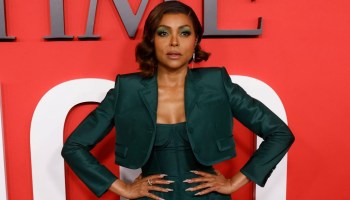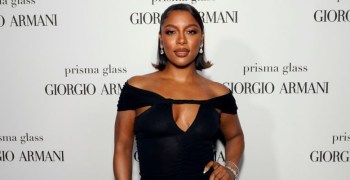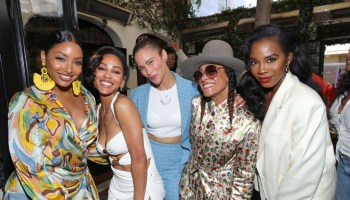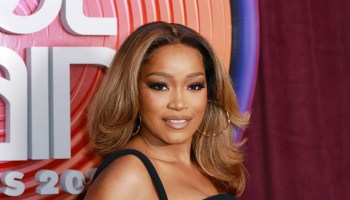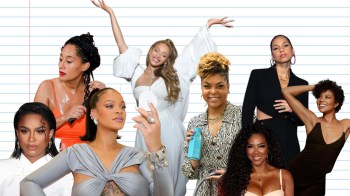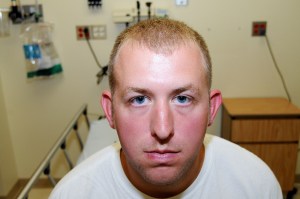
Source: Handout / Getty
This is the American horror story, I thought to myself last night as I sat through 23 pages of Darren Wilson’s commentary in the New Yorker on his life and his killing of Black Ferguson, MO teenager, Michael Brown.
It is easy to understand why we haven’t seen or heard much from Wilson since his interview with George Stephanopoulos last November; his reflections are crude and out of touch in regard to the lives and suffering of Black people. He shows no remorse for Brown’s death. He also speaks at length about how he feels the public exaggerates issues surrounding race, that his killing wasn’t racially motivated and that marginalized people are to blame for their own struggles with poverty and joblessness.
Wilson’s words make it too easy to detest his character.
He is the embodiment of why we need to stop elevating the voices of America’s most infamous murderers and molesters. The media has the fascination with exploring the minds our country’s most lethal, White sociopaths as if they’re psychological wonders.
I understand that there will be bias in every piece of media content that we consume; I’m just calling for the reversal of it. Instead of putting these men on pedestals and giving their life stories a visibility that they don’t deserve, I want for us to depict them as the scum that they are, ripping away at the humanity of others and obliterating the legacies of those less privileged.
My skin crawled when I first saw Wilson’s feature story on Facebook and Twitter because it reminded me of the controversial and poorly-produced Rolling Stone cover featuring Boston Bomber Dzhokhar Tsarnaev. In the piece written by Janet Reitman, Tsarnaev is bizarrely portrayed as a popular, attractive student who was wronged by society. The way she describes him in the story sounds more like lines from a press release about a new band member joining One Direction: a “beautiful, tousle-haired boy with a gentle demeanor and soulful brown eyes.” In reading Wilson’s feature, I was also be reminded of Chris Kyle’s depiction in American Sniper—the way he was inadvertently cast with a backdrop glamorizing his work of killing people as patriotic.
MUST READ: Of Men & Monsters: In Media, There Are No Black Victims
Their portrayals are a stark contrast to the way Black police brutality victims like Brown are cast when their deaths are being reported. Instead of centering Brown’s story as a struggling teen who was working to push himself his past adolescent mistakes, publications like the New York Times referred to Brown as “no angel.”
I only grew sicker and fatigued as I went on to read what Wilson had to say. Now, Wilson is unable to find work as a police officer, as he is told that he’d be a liability to his colleagues at the force. Wilson tried working at a bookshop but promptly quit after reporters kept calling the store for interviews. I’d feel bad for him, given that he and his wife seemingly have no way of providing for their children, but his abhorrent, bigoted comments prevent me from doing so.
I could start listing examples of this for you but I’m not sure where to start. Perhaps I should start at the part where he says he avoids “mixing pots” and now only goes out in public spaces with “like-minded individuals”—a thinly-veiled reference to White people. His words insinuate the false idea that White people automatically have a different mental capacity than other races.
Or I could talk about how he used to love working in poor Black neighborhoods like Ferguson and Jennings, MO because they entertained him. He seems to love our culture and is amused by our presentation, but he would unapologetically wipe one (or two or three) of us from the earth at his earliest opportunity because he feels threatened by us.
Most upsetting, perhaps, was the part where he said:
“Everyone is so quick to jump on race. It’s not a race issue … There are people who feel that police have too much power, and they don’t like it. There are people who feel police don’t have enough power, and they don’t like it.”
Wilson’s overly-simplistic analysis of the problems, which he himself is a manifestation of, illustrates that he is inept in understanding the intersecting issues that affect marginalized, Black people. He doesn’t understand that power is in part coded by ideologies on race and gender. He doesn’t understand what White privilege is, nor does he have any concept of institutional racism or generational oppression.
MUST READ: How Much Do Black Lives Really Matter To Our White Friends?
The only silver lining I can conceive of after reading this story is that at least we have another document testifying on how poorly our nation’s police are trained to deal with varying sectors of the public. Jake Halpern, the author of the report, cited a study from the Police Executive Research Forum showing that on average, cadets get 58 hours of training in firearms and 49 hours of defense strategies, but only ten hours of training in communication skills and eight in de-escalation strategies.
MUST READ: Why Does Cecil The Lion Receive More Humanity Than Slain Black Lives?
Yes, Darren Wilson’s story and perspective on the policing of Black life is disheartening not only for Black people, but for any American who has the slightest conscience and empathy for their fellow man.
If the New Yorker thought it was valuable to go back and document the life of Darren Wilson for the public to see, a year after Michael Brown’s death, I ask: why isn’t there a companion piece serving the same purpose for Michael Brown’s family? Did the family deny that idea? Did they think that an exposé on Wilson would simply be more sensational, garner more clicks? Did they even think to do such a story on Brown’s family at all?
I have to ask about showing the other side of the story here because, as Wilson made painfully clear throughout his interview with Halpern, his current viewpoint on everything that has happened to him, Brown’s family, and the entire country shows us that he really hasn’t learned much, that he still doesn’t appreciate the humanity, mortality and pain of Black people. He isn’t going to admit that his actions created a historical awakening the American people to this country’s ingrained racism and fear of Black life. By giving Wilson (and Tsarnaev and Kyle) a spot in the limelight for their heinous crimes, we’re validating their reasoning and acts of hate—things that no one needs or ever asked for in the first place.
RELATED LINKS:










